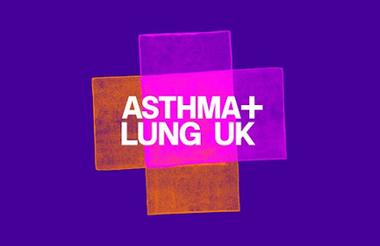Asthma + Lung UK has reduced its annual pensions-related CO2 emissions by 93% compared with a baseline measurement taken in 2021, it has reported.
Yesterday, the charity published a carbon footprint document, alongside its annual report for the year ending 30 June 2023, which details its journey to halve its CO2 emissions by 2027.
As of 30 June 2023, Asthma + Lung UK had achieved a 45% overall reduction in its carbon footprint, according to its documentation.
This includes a 93% reduction in emissions attributable to its annual pension contributions and a 41% reduction in emissions attributable to its investment holdings.
Pension contributions
The document shows that pension contributions and investment holdings at Asthma + Lung UK are the charity’s biggest CO2 emitters.
Annual pension contributions release 153 tonnes of CO2 per year (13% of the charity’s total CO2 emissions) while investment holdings produce 858 tonnes (75% of total CO2 emissions).
“Having identified where we could make the biggest reductions in our carbon footprint, we set out a plan to move our pensions and investments out of fossil fuels wherever possible,” the document reads.
“Emissions relating to pensions were based on our annual contributions into the staff defined contribution pension scheme: we took the view that this was the element we were responsible for, as we have no way of knowing the value of an individual’s pension pot.
“We used published estimates of annual CO2 emissions per £ where these were available. We undertook a full market review and identified providers that could offer a default fund – that is the fund into which contributions are paid unless the employee specifies otherwise – which had significantly divested from fossil fuels.
“We launched our new pensions offer to staff in the summer of 2022, and as well as being well received by our team, it ensured a significant reduction in our annual carbon footprint related to pension contributions.”
Investment holdings
At 30 June 2023, Asthma + Lung UK held cash balances of £3.4m and an investment portfolio of £17.9m.
Its investments were held in funds with published estimates of CO2 emissions per pound invested per year.
The charity undertook a market review and identified “a new provider who has taken a strategic decision to divest from fossil fuels”, using the Paris Agreement as its chief benchmark.
“In the spring of 2023, we began moving our investments to our new chosen supplier, CCLA,” the document reads.
“As of 30 June 2023, this move was still underway, with only the last few tranches to come across.”
Asthma + Lung UK predicted that it will achieve its commitment of halving its emissions “at some point during the 2023-24 year”.
Using investments to further the mission
Speaking last month at Charity Finance’s ESG Imperative, Ben Clarkson, chief operating officer at Asthma + Lung UK, said the charity saw an opportunity to use its investments to help further its mission.
“We were trying to get our own house in order and we could reduce our CO2 emissions. But we could go further than that,” he said.
“If you’re actively taking your money out, you’re doing something to reduce the causes of air pollution and that is helping achieve your mission.”
Clarkson then explained the rationale behind the decision to include pensions in the carbon footprint.
“We were looking for things where an action we took contributed to air pollution and the action we identified was the contributions we paid in on an annual basis.
“Essentially, once it’s been paid in, it’s the employees’ money and what they do with it is up to them. But if we were paying into the default fund that’s invested in fossil fuels, knowing that statistically very few people move out of the default fund, then we were contributing.
“We decided to limit the scope of what we were contributing on the basis that we had no idea how many people have got in their pensions. We knew that that was something we had control over, that’s the bit where we could make a difference, so that’s why we included it.”
He added that consistency was key rather than trying to achieve perfection.
“You need qualified advice and trustee allies help,” he said.
Related articles











